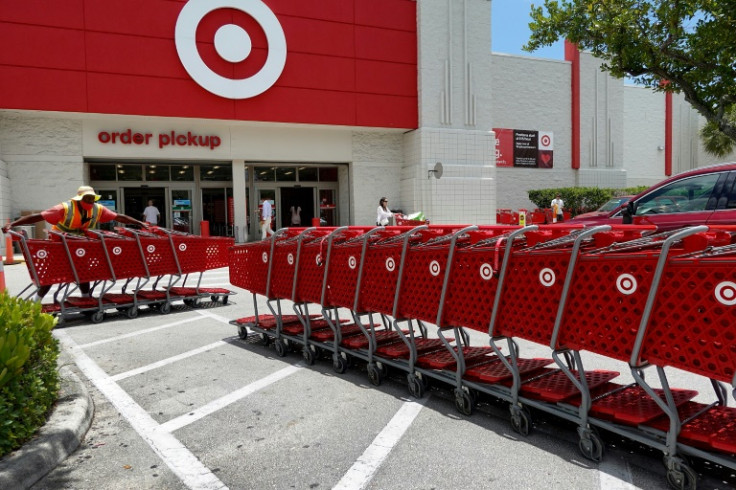
Target's chief executive officer Brian Cornell met civil rights campaigner Rev. Al Sharpton on Thursday as the American retail giant grapples with falling customer footfall and a growing boycott threat following its controversial retreat from diversity programmes.
Describing his meeting with Cornell as 'very constructive and candid', Sharpton said in a statement: 'I am going to inform our allies, including Rev. Dr Jamal Bryant, of our discussion, what my feelings are.'
Target Boycott Gathers Steam Amid DEI Backlash
Bryant, an Atlanta-area pastor, launched TargetFast.org to recruit Christians for a 40-day boycott of Target, with support from other faith leaders. The protest began on 5 March, coinciding with the start of Lent.
According to Sharpton's National Action Network (NAN), two NAN representatives—National Board Chair Dr W. Franklyn Richardson and Senior Advisor Carra Wallace—also attended the meeting in New York.
Target had requested the meeting after civil rights groups urged consumers to stop shopping at the retailer in response to its decision to scale back diversity, equity and inclusion (DEI) initiatives.
'You can't have an election come and all of a sudden change your old positions,' said Sharpton. 'If an election determines your commitment to fairness then fine, you have a right to withdraw from us, but then we have a right to withdraw from you.'
The Minneapolis-based retailer has experienced 10 consecutive weeks of declining store visits since announcing its plans to pull back on DEI efforts in January.
'What Changed?': Sharpton Demands Accountability
Sharpton has not yet formally called for a boycott but made it clear that Target's commitment to Black-owned businesses will be central to further discussions.
'I want to first hear what he has to say,' Sharpton said. 'But if they don't confirm their commitment to the Black community and pledge to work with Black-owned businesses, we'll consider next steps.'
Sharpton also questioned the company's follow-through on promises made after the police killing of George Floyd in Target's hometown.
'You made commitments based on the George Floyd movement... what changed?' he asked. 'Are you trying to say everything's fine now because the election changed? That's insulting to us.'
Cornell had previously expressed strong emotion over Floyd's death, stating in 2021: 'That could have been one of my Target team members.' At the time, he pledged that Target would become a 'role model that drives change'.
DEI Rollback Coincides With Declining Footfall
Target's January announcement marked a sharp departure from its earlier progressive stance. The company said it would:
- End its three-year DEI targets
- Stop sharing diversity reports with external organisations like the Human Rights Campaign
- Discontinue specific efforts to stock products from minority-owned businesses
Store visits began to drop almost immediately after the changes were made public. Data from March showed a 6.5% year-on-year decline in footfall.
Target joins other major US corporations—such as Walmart, McDonald's and PepsiCo—that have retreated from DEI initiatives amid conservative backlash and former President Trump's pledge to eliminate federal DEI programmes.
Costco's Stand On Diversity Pays Off
In contrast, warehouse chain Costco has stood firm on its DEI principles. Shareholders recently voted overwhelmingly against a proposal to reconsider the company's diversity policies.
The result? Costco enjoyed a 7.5% increase in store visits in March, according to Placer.ai. NAN has since launched 'buy-cotts' at Costco locations across the US, providing gift cards to encourage shopping at the chain.
Target Faces Multiple Challenges
Target's DEI controversy is only part of its broader business struggle. The company is also contending with:
- Four consecutive years of flat annual revenue
- Pressure on profit margins as shoppers focus on essentials
- Tougher competition from a resurgent Walmart
- Disappointing full-year growth forecast of just 1%
A Target spokesperson confirmed the meeting with Sharpton but declined to comment further on the situation or the store traffic data.
Corporate America Divided Over DEI
Sharpton's meetings with major companies like Target and PepsiCo represent a pivotal moment in the debate over diversity in corporate America.
On one side are conservative activists like Robby Starbuck, who have successfully pressured several firms to roll back DEI commitments. On the other are civil rights organisations fighting to maintain hard-won gains.
As Target attempts to steer through this reputational storm, the outcome of Sharpton's discussion with Cornell may determine whether brands can still find common ground in a divided marketplace—or if shoppers will continue casting their votes with their wallets.
Originally published on IBTimes UK







